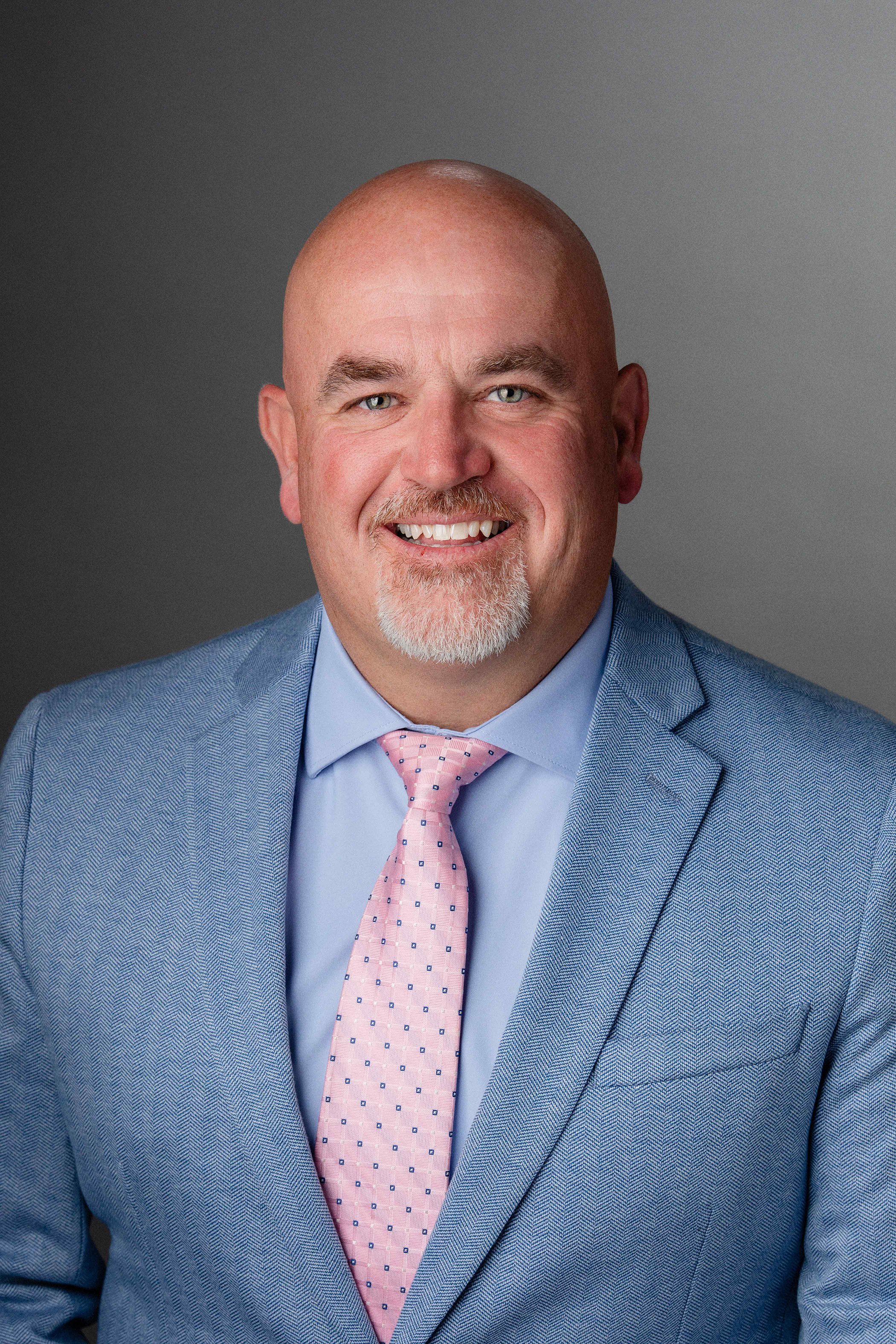Medicaid expansion bill sparks debate on future of Idaho health care
KAYE THORNBRUGH | Hagadone News Network | UPDATED 10 months, 2 weeks AGO
Kaye Thornbrugh is a second-generation Kootenai County resident who has been with the Coeur d’Alene Press for six years. She primarily covers Kootenai County’s government, as well as law enforcement, the legal system and North Idaho College. | February 15, 2025 1:09 AM
COEUR d’ALENE — By a single vote, and after overwhelmingly negative public testimony, the Idaho House and Welfare Committee advanced a bill that could end Medicaid expansion.
House Bill 138, by Rep. Jordan Redman, R-Coeur d’Alene, requires Idaho to enact 11 Medicaid policy changes by next July or repeal Medicaid expansion, a policy that makes more low-income Idahoans eligible for Medicaid.
But Redman said his bill isn’t meant to end Medicaid expansion, which nearly 61% of Idaho voters approved in 2018.
Rather, he said, HB 138 is an attempt to salvage Medicaid expansion in a political environment where an outright appeal is likely. Last month, lawmakers introduced a bill to repeal the voter-passed law.
“There is a strong political will within the House of Representatives to repeal Medicaid expansion,” Redman said.
Redman told fellow legislators this week that HB 138 is a “commonsense” bill that will create accountability measures and cut costs.
“This is the option that we have to save Medicaid expansion but put in safeguards,” he said.
Critics say the changes required by the bill are virtually impossible to implement and all but guarantee that Medicaid expansion will be repealed.
‘We’ve got the gun pointed at ourselves’
Idaho needs the federal government’s approval, in the form of waivers, to implement many of Redman’s proposed changes. These include work requirements, capping expansion enrollment and establishing a three-year limit on enrollment.
If any of the proposed changes aren’t in effect by July 2026, the bill would automatically repeal Medicaid expansion.
Redman described the repeal trigger in HB 138 as “the bullets in the gun to kind of force” the federal government to grant Idaho’s waivers.
“In Washington, D.C., you have bureaucrats who won’t move as fast unless there’s something at stake,” he said.
Rep. Josh Wheeler, R-Ammon, expressed skepticism that the federal government would be the one to blink.
“We are not putting anything on the line for them. We are putting everything on the line for us and for our constituents,” he said. “My concern is the bullets are in the gun, like you said, and we’ve got the gun pointed at ourselves, not at the bureaucrats.”
Rep. Ilana Rubel, D-Boise, said the trigger makes HB 138 “unquestionably repeal” because of the low chance that the federal government will grant all of Idaho’s waivers. Most of the 11 changes proposed by the bill have been turned down in other states, she said, because they’re “not legally permissible under the Affordable Care Act.”
“Forget a camel going through the eye of a needle,” she said. “It’s like flying a 747 through the eye of a needle to make this happen.”
Rep. Marco Erickson, R-Idaho Falls, pushed back on Redman’s assertion that HB 138 won’t spell the end of Medicaid expansion in Idaho.
“No, it’s not a reform bill,” he said. “This will kill Medicaid expansion.”
Medicaid expansion’s local impact
Advocates for Medicaid expansion say it bridges a gap for the working poor who don’t have employer-sponsored health insurance, can’t afford private insurance and earn too much to qualify for traditional Medicaid. The income limit for a single adult to qualify for Medicaid, including expansion, is $1,800 a month.
Before voters passed Medicaid expansion in 2018, tens of thousands of Idahoans lived in that gap.
“People in our community would delay care and they would go to the emergency department as a last resort,” said Mike Baker, CEO of Heritage Health. “They would come to Heritage, but they wouldn’t fully engage in care. People wouldn’t take their medication because, even at our reduced prices, they couldn’t afford it.”
About 45% of Heritage Health patients are enrolled in Medicaid. In the behavioral health realm, as many as 80% of patients are enrolled in Medicaid or Medicare. All told, about 65,000 patient visits last year involved people enrolled in Medicaid.
If Medicaid expansion is repealed or if tens of thousands of Idahoans lose Medicaid coverage due to enrollment caps, Baker said many of those people will be forced to forgo preventative care.
“You’ll see people revert back to a scarcity mindset instead of actually taking care of their health,” he said.
Beyond Coeur d’Alene, Heritage Health has clinics in Rathdrum, St. Maries and Kellogg. David Atkins, chief behavioral health officer at Heritage Health, said Medicare and Medicaid payments allow the nonprofit to sustain and even grow services to meet the needs of these rural communities.
“If any of these clinics shut down, there would be very few or no services available in these communities,” Atkins said. “In places like St. Maries, it doesn’t matter what insurance you have — there’s not a lot of options.”
Medicaid expansion isn’t just a Kootenai County issue.
As the regional referral center for the 10 northernmost counties in Idaho, Kootenai Health provides specialized care that smaller hospitals can’t. Patients from Bonner, Boundary, Shoshone, Benewah and other rural counties depend on the hospital’s services.
“If Medicaid expansion is repealed, the resulting financial and operational strain will ripple across the region, limiting our ability to provide care for all patients, regardless of their insurance status,” said Michele Bouit, Kootenai Health’s chief financial officer.
North Idahoans who count on Medicaid
Ashleigh Coles, a Coeur d’Alene preschool teacher, relies on Medicaid for her 2-year-old daughter’s health care. Adding her daughter to the insurance she receives through her work would cost about $650 per month.
“Medicaid allows me to still be able to put food on the table and have a roof over her head without having to worry,” Coles said. “If she were no longer able to receive that, I wouldn’t be able to get her well checks at the pediatrician or medication if she were to get sick.”
When Coles lost her health insurance during her pregnancy and delivered her daughter more than five weeks early, Medicaid helped cover the bill.
“Without Medicaid, I would be in debt for her (16-day NICU) stay alone, not to mention the time that I was in the hospital, as well,” she said.
Supporters of HB 138 have emphasized that children, seniors and disabled Idahoans won’t be affected by the bill’s proposed changes to Medicaid.
Instead, Redman said, the bill would cap the number of able-bodied adults who can be enrolled in Medicaid, topping out at around 35,000 people. More than 90,000 adults were enrolled in the expansion program in December 2024, according to the Department of Health and Welfare. Redman said he envisions a kind of wait list for new people to enroll as others “graduate” from Medicaid.
“If we don’t fix this, we’re going to be watching Medicaid drain our budget and put able-bodied adults ahead of those who truly need it,” he said. “It also makes people more dependent on government subsidies. It traps people instead of helping them.”
Coles said she believes able-bodied adults who can’t afford insurance deserve access to health care through Medicaid.
“They can’t pay their bills and put food on the table if they’re having to pay high premiums for health care,” she said. “Allowing people who are able-bodied and can work to have access to Medicaid helps them provide for their families.”
Baker said he understands Redman’s position that HB 138 is an alternative to an outright appeal of Medicaid expansion and an effort to improve the program.
“He’s trying to help our state,” Baker said. “The discussion (the bill) is generating is really important. Let’s be super creative and bold. Let’s come up with innovative approaches that really make Idaho healthy.”
ARTICLES BY KAYE THORNBRUGH
Cd’A man charged with possession, distribution of child sexual abuse material
Brendan M. Shea, 27, of Coeur d’Alene, is charged with one count of sexual exploitation of a child by distribution of sexually exploitative material and five counts of sexual exploitation of a child by possession of sexually exploitative material, all felonies.
Rathdrum police seek victims amid burglary investigation
Rathdrum police arrested a suspect Tuesday who they believe to be involved in multiple burglaries, according to a news release.

BLM: Migrating eagle population peaked early this year
The annual migration of bald eagles to Lake Coeur d’Alene to feed on spawning kokanee is past its peak, according to the Bureau of Land Management.









